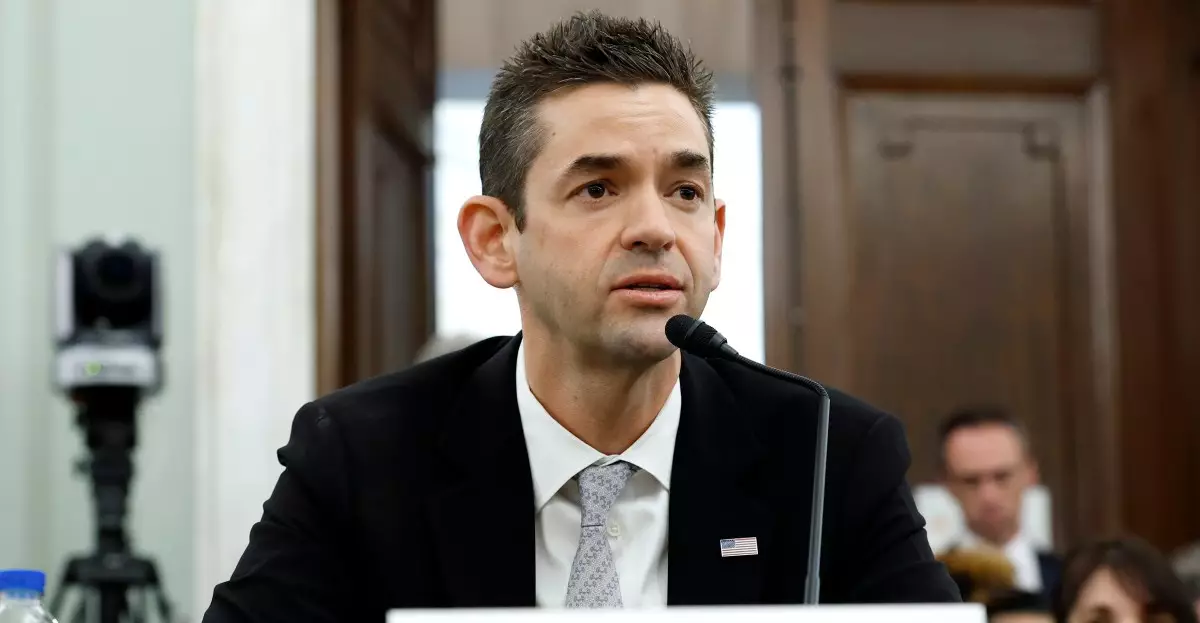The recent withdrawal of Jared Isaacman’s nomination to lead NASA has unfolded a complicated narrative surrounding political affiliations and ambitions in space exploration. Isaacman, a billionaire entrepreneur recognized as the CEO of Shift4 Payments, found himself at the intersection of space tourism and political undercurrents. The move to rescind his nomination, reportedly instigated by his financial contributions to Democratic candidates, raises poignant questions about the politicization of space leadership roles. Specifically, it illustrates how partisan interests can manipulate the nomination process, potentially stifling innovation and progress in a critical sector.
The Intersection of Business and Politics
Isaacman’s close ties to Elon Musk and SpaceX positioned him as a forward-thinking choice for NASA’s leadership. His participation in groundbreaking missions like Inspiration4 and Polaris Dawn showcased his commitment and passion for space exploration. However, this romanticized view of his candidacy was swiftly clouded by the reality of political motivations, as revealed by sources close to the matter. The Trump administration’s abrupt decision to withdraw Isaacman’s nomination appears to hinge on political ideology rather than merit or vision for NASA’s future. This scenario raises an unsettling concern: Are capable leaders being sidelined due to their political contributions rather than their qualifications?
A Changing Landscape in Space Exploration Funding
The implications of Isaacman’s resignation are compounded by the Trump administration’s recent NASA budget proposal, which seeks to drastically reduce the agency’s funding. A proposed cut of nearly 25% could cripple NASA’s scientific endeavors and tarnish its reputation as a leader in space exploration. Organizations like The Planetary Society have expressed alarm, deeming the budget cuts an “extinction-level event” for NASA’s core missions. Reductions in funding for scientific research not only undermine exploration efforts but could also jeopardize public trust in governmental space initiatives, severely impacting future innovations.
The Future of NASA: An Uncertain Horizon
With NASA’s leadership now enveloped in uncertainty, there arises a pressing concern about the direction the agency will take in the coming years. An unnamed former senior NASA official voiced a bleak perspective, cautioning that the agency’s current trajectory seems to be “just a going-out-of-business mode.” This sentiment resonates among many who advocate for sustained funding and visionary leadership to drive humanity’s quest for discovery beyond Earth. The absence of a capable leader like Isaacman is felt more keenly against the backdrop of dwindling funding and shifting political motives that threaten to derail America’s renewed commitment to space exploration.
As the dust settles on this decision, the implications for both NASA and the broader space industry are profound. The next choice for NASA’s administrator will not merely be another bureaucratic appointment; it will be a decisive moment for American leadership in space. It is imperative that the individual selected can bridge the chasm between political expectations and the innovative spirit that has long characterized America’s venture into the cosmos. While the future remains uncertain, one truth stands clear: leadership should be based on vision and capability, not political allegiances.

